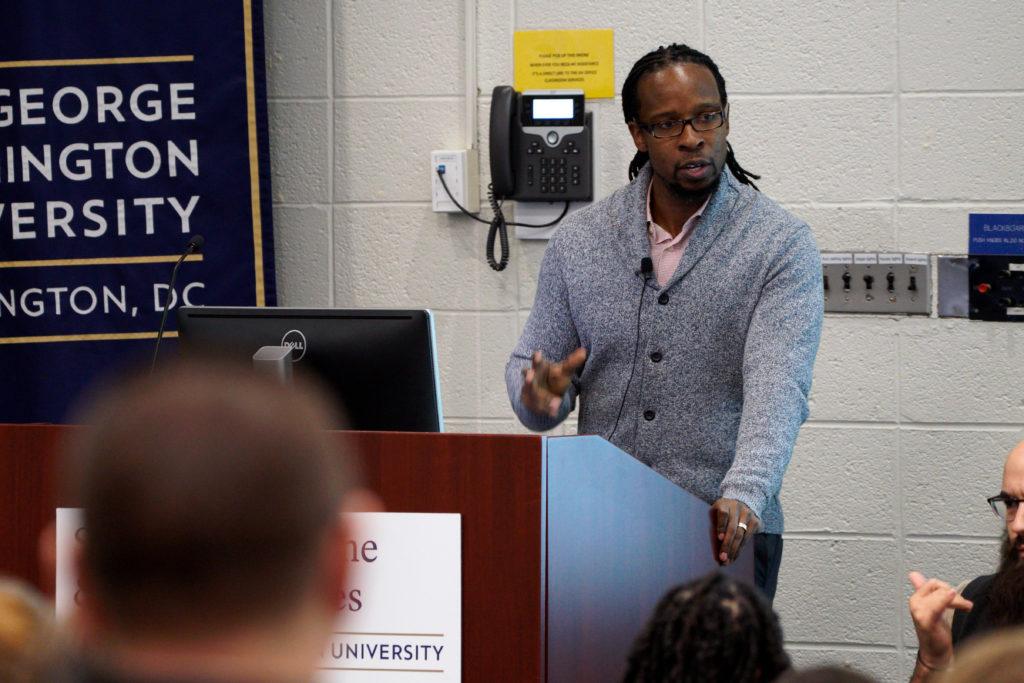An American University professor tied themes from his upcoming memoir, “How to be an Antiracist,” to the celebration of Martin Luther King Jr. during a lecture in Ross Hall Wednesday.
Ibram Kendi, a professor of history and international relations and a founding director of the Antiracist Research and Policy Center at American University, spoke at the School of Medicine and Health Sciences’ main building for the third annual Martin Luther King Jr. lecture. In addition to discussing the definition of an antiracist, Kendi challenged common perceptions of King’s life and legacy.
Kendi said Americans focus on King’s activism during the civil rights movement but ignore his more radical positions, like his opposition to the Vietnam War and organization of the Poor People’s Campaign just before his assassination in 1968.
“We don’t remember King the revolutionary, we remember King the dreamer,” he said.
Kendi said King’s “capacity to self-reflect and to self-critique” is an important part of being an antiracist, which he defined as the true opposite of racism. He said King’s experience in Los Angeles in the aftermath of the 1965 Watts riots inspired the civil rights activist to adopt a more vocal anti-war stance.
“This is what most inspires me about King – the capacity that he had to change, to evolve, to become a better person,” he said.
Kendi said the ability to continually improve is vital for being antiracist. He said the title of his book reflects the fact that achieving antiracism is a “constant struggle” that does not ever end.
“One of the reasons the book is titled ‘How to Be’ as opposed to ‘How to Become’ is because I do not actually think you can become an antiracist,” he said. “It’s really something that you can strive to be, it’s not really something that you can become.”
Kendi said the difference between racists and antiracists is their beliefs about the cause of racial disparities.
“Racists believe unequal societies, racial disparities stem from unequal peoples, while antiracists believe that the racial groups are equal, and so therefore, if you have disparities between racial groups, it must be the result of policies,” he said. “It is that simple.”
Kendi said the United States has recognized King’s “nightmare in its totality” under President Donald Trump’s administration but added that “we must not necessarily despair.”
“We are losing this country to lies and wars and inequality and exploitation, but the nation is not lost,” he said. “It will never be lost, King tells us, so long as we continue to believe change is possible.”





